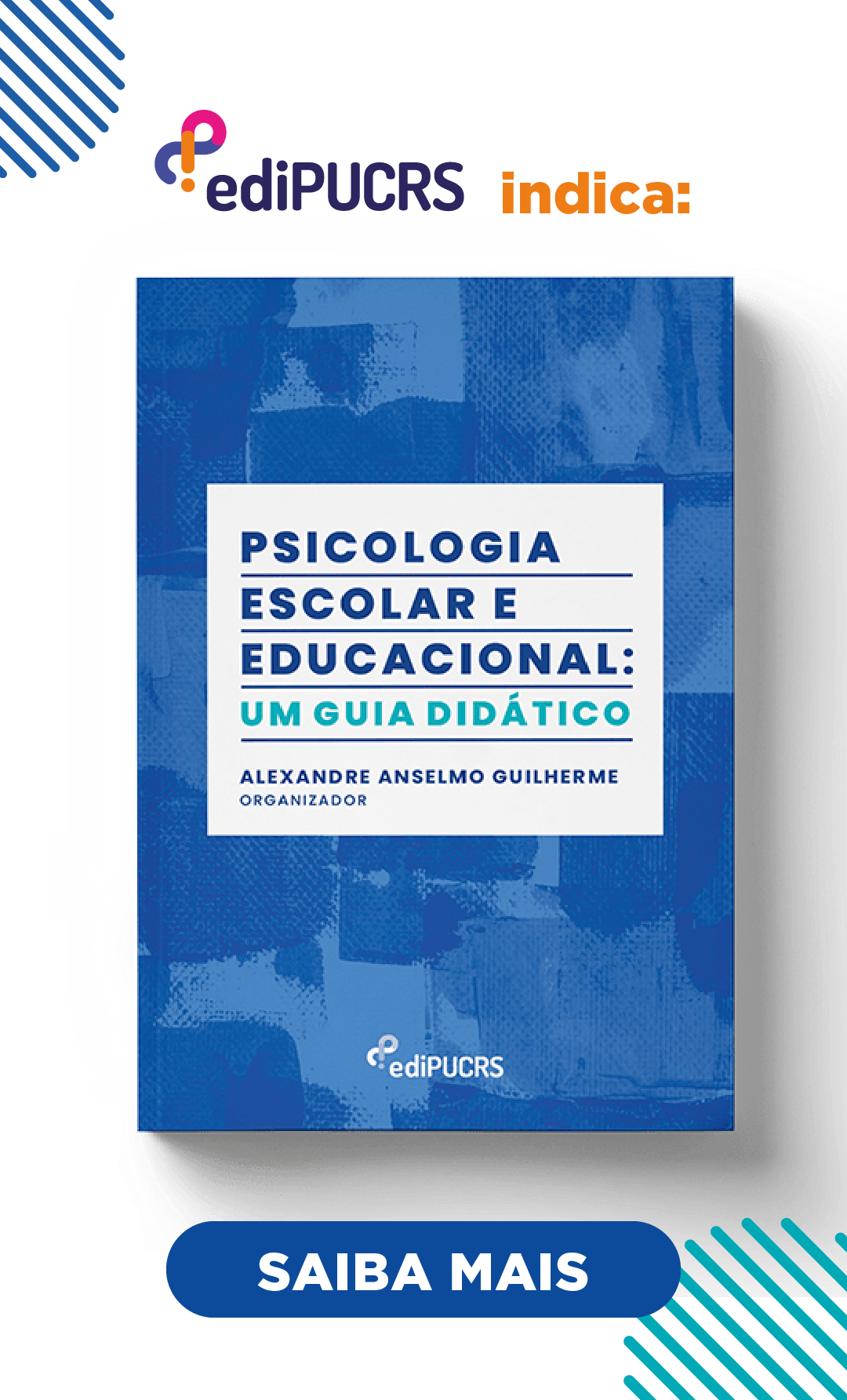A pedagogy of love is possible in inclusive education?
Keywords:
Palavras-chave: Amor. Pedagogia Marista. Educação Inclusiva.Abstract
The main objective of this article consists of a bibliographic analysis of how it is possible to obtain a Pedagogy of Love with students of an inclusive education, within a classroom. It started from the theoretical assumptions that contemplate Bauman (2003), Bonhemberger, Mentges (2016), Desaulniers (2011), Estaún (2014), Freire (1996), Furet (1989), Juliatto (2013), Maraschin (2006), Teixeira (2004), Inclusive Education Guidelines of the Marist Network, Educational Project of Marist Brazil and the Inter-American Solidarity Subcommittee, among others. Lately, there is a lot of diversity, families with other priorities and a demand for inclusion and exclusion of students within a room, and an educator concerned with serving all students in diverse situations. The methodology used was a qualitative approach, with an exploratory objective based on the technique of bibliographic research. The chapters mention the conceptual understanding of Pedagogy of Love, the integral formation and the inclusion of this student in the midst of all this diversity. The result of this article is to show how much the Pedagogy of Love influences students’ school life, contributing to their inclusion in society. This pedagogy is a unique way of educating, which consists of care and love to teach inclusion students. The school that develops its learning in a more comprehensive way with a pedagogy based on love has the possibility to prepare its student for life and not only for academic knowledge. For this understanding, it is observed that it is necessary to review processes, improve knowledge, leave accommodation to build new knowledge and new learning. For this understanding, it is observed that it is necessary to review processes, improve knowledge, leave accommodation to build new knowledge and new
learning. For this reason, it is essential for the educator to be bold and for the student to have the courage
and dedication so that, through education, they can transform any space they are in.
Downloads
References
AGOSTINHO, Santo. A cidade de Deus: contra os pagãos. Bragança Paulista: Editora Universitária São Francisco, 2003.
BAUMAN, Zygmunt. Amor líquido: sobre a fragilidade dos laços humanos. Rio de Janeiro: Zahar, 2003.
BONHEMBERGUER, M.; MENTGES, M. (Orgs.). Educação Marista: perspectivas e desafios. São Paulo: FTD, 2016.
BRASIL. Ministério da Educação. Lei nº 9.394, de 20 de dezembro de 1996. Estabelece as diretrizes e base da educação nacional. Disponível em: <http://portal.mec.gov.br/seesp/arquivos/pdf/lei9394_ldbn1.pef>. Acesso em: 18 de nov. 2016.
COLÉGIOS E UNIDADES SOCIAIS DA REDE MARISTA. GERÊNCIA EDUCACIONAL. Diretrizes da Educação Inclusiva na Educação Básica da Rede Marista/Colégios e Unidades Sociais da Rede Marista. Gerência Educacional;
CUNHA, Ana Rosimeri Araujo da, SILVA; Simone Martins da (Orgs.). Porto Alegre: Centro Marista de Comunicação, 2018.
COSTA, Marcos Roberto Nunes. Introdução ao pensamento ético político de Santo Agostinho. São Paulo: Loyola, 2009.
DESAULNIERS, Julieta Beatriz Ramos. Projeto político pedagógico: o jeito de formar nos Centros Sociais Maristas. Porto Alegre: CMC, 2011.
ESTAÚN, Antonio Martínez. Pedagogia da presença marista. Curitiba: Grupo Marista, 2014.
FREIRE, Paulo. Pedagogia da autonomia. Rio de Janeiro: Paz e Terra, 1996.
FREIRE, Paulo. Pedagogia do oprimido. 17.ed. Rio de Janeiro: Paz e Terra, 1987.
FURET, João Batista. Vida de São Marcelino José Bento Champagnat. São Paulo: Loyola; SIMAR, 1989.
JULIATTO, Clemente Ivo. De professor para professor: falando de educação. Curitiba: Ed. Champagnat – PUCPR, 2013.
LIBÂNEO, José Carlos. Didática. 2. ed. São Paulo: Cortez, 2013.
MARASCHIN, Mariglei Severo. Formação de professores e desenvolvimento profissional na educação de jovens e adultos. Santa Maria: USFM, 2006.
MATURANA R., Humberto. Emoções e linguagem na educação e na política. Belo Horizonte: Ed. UFMG, 1998.
MONTAGNA, Leomar Antônio. A ética como elemento de harmonia social em Santo Agostinho. 2006. 134f. Dissertação (Mestrado em Filosofia) – Escola de Humanidades, Pontifícia Universidade Católica do Paraná, Paraná, 2006.
REIS, Cecília. Entrevista: Humberto Maturana e a importância do amor. Abril, casa.com.br, São Paulo, 2016. Disponível em: <https://casa.abril.com.br/bem-estar/entrevista-humberto-maturana-e-a-importancia-do-amor/>. Acesso em: 15 maio 2020.
REY, Fernando L. G. O sujeito que aprende: desafios do desenvolvimento do tema da aprendizagem na psicologia e na prática pedagógica. In M. C. V. R. Tacca, Aprendizagem e trabalho pedagógico. Campinas, SP: Ed. Átomo e Alínea, 2006.
SUBCOMISSÃO INTERAMERICANA DE SOLIDARIEDADE. Caminhos da solidariedade Marista nas Américas: crianças e jovens com direitos. Porto Alegre: EDIPUCRS, 2013.
TEIXEIRA, Evilázio Francisco Borges. Pensando a educação Marista com um olhar interdisciplinar. Revista Educação, Porto Alegre, v. 3. n. 54, p. 617-639, dez., 2004.
UMBRASIL - UNIÃO MARISTA DO BRASIL. Projeto Educativo do Brasil Marista: nosso jeito de conhecer a educação básica. Brasília: UMBRASIL, 2010.
Downloads
Published
How to Cite
Issue
Section
License
Copyright (c) 2021 Caderno Marista de Educação

This work is licensed under a Creative Commons Attribution 4.0 International License.
A submissão de originais para este periódico implica na transferência, pelos autores, dos direitos de publicação impressa e digital. Os direitos autorais para os artigos publicados são do autor, com direitos do periódico sobre a primeira publicação. Os autores somente poderão utilizar os mesmos resultados em outras publicações indicando claramente este periódico como o meio da publicação original. Em virtude de sermos um periódico de acesso aberto, permite-se o uso gratuito dos artigos em aplicações educacionais e científicas, desde que citada a fonte (por favor, veja a Licença Creative Commons no rodapé desta página).




